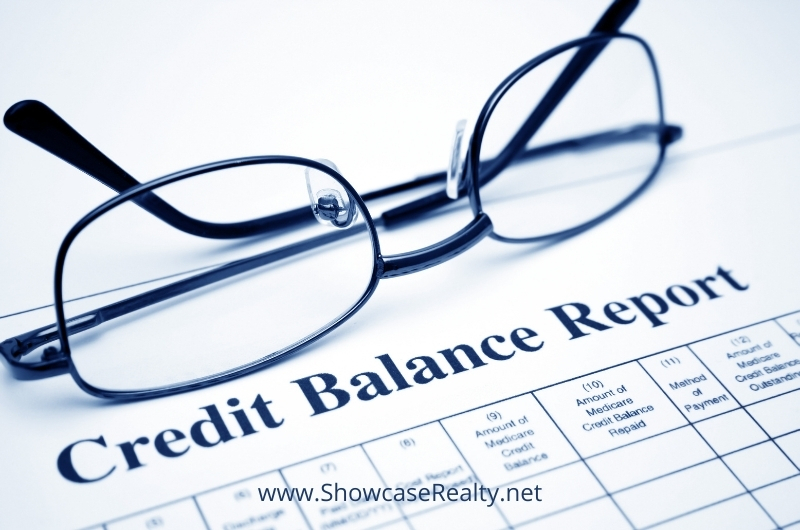9 Tips to Improve Your Chances of Getting Approved for a Home Loan
September 08, 2020

Post by: Nancy Braun, Showcase Realty
9 Tips to Improve Your Chances of Getting Approved for a Home Loan
If you're planning to buy a home in Charlotte NC, you're also going to need to get a mortgage – not everyone can pay in cash.
A home loan can be thousands of dollars. Because it's such a large amount, specific measures are set in place by financial institutions to ensure they won't lose their money. Your financial history will be evaluated to make sure you can make your payments on time.
Here are 9 tips to make you more attractive in the eyes of lenders.
1. Save the Biggest Deposit You Can
One of the best things to increase your chance of getting a loan is to have a big down payment saved. Lenders will want you to have a cash deposit when you buy a home.
How much do you need in savings?
- You should have enough savings to cover the 20% down payment of the home you qualify for.
- The more substantial the deposit, the smaller your monthly mortgage payments are. Interest rates are also lower if you can pay a large deposit.
What are some ways you can save for a down payment?
- Include down payment in your monthly budget so you'll always remember to save some money. Before you do this, you need to have an idea of how much to save.
- Your down payment savings should not exceed 28% of your monthly income.
- Set up an automated savings plan.
- Trim your budget so you can put more money for the down payment.
- Start packing lunch at home instead of eating out.
- Cut any unnecessary expenses like online shopping every week.
- Start a side business. There are plenty of opportunities to create a side business. This way, you can continue working and still have a business on the side that gives you additional income.
2. Know Your Credit Score

How's your credit score? Your credit score will determine whether you are capable of purchasing a home or not. If you have a good credit rating, it will make your purchase easier. If you're having a hard time getting by, you may want to get your financial affairs in order.
Lenders will check your credit score and credit report to determine if you qualify for the loan and what interest to offer you.
What's the difference between a credit score and a credit report?
Credit Report
The credit report is an account of your credit and payment history. This report is what lenders use as a basis to decide if they will lend you money and at what interest rate. Credit bureaus compile these reports and use a computation that predicts how you can pay back on the loan.
Your credit score is computed from the information taken from the credit report.
Credit Score
A credit score is a number based on the information in the credit report. Different lenders use different scoring formulas, so you don't have only one credit score. Your score will change depending on the type of scoring the lender uses.
Your FICO score will depend on the credit bureau giving it. You can have an Experian FICO score, an Equifax score, or a TransUnion FICO score.
Your score depends on the following information:
- Payment history
- The amount of debt
- Length of credit history
- Credit mix
- New credit
FICO scores range from 300-850. The better your credit score, the more likely you'll be approved on your mortgage loan. The best rates go to borrowers with credit scores from the mid-700s or above.
3. Pay All Credit Card Debts

Many people have credit card debts. If you're one of these people and you plan to apply for a mortgage loan, your credit card debt can give you a serious problem.
That doesn't mean you need to have excellent credit, but it certainly helps. Good credit means you get better interest rates, which in the entire term of a loan translates to thousands of dollars.
The lower the interest rate is, the bigger your principal payments will be. A lower rate helps you build acuity faster.
Having credit card debt doesn't mean you cannot qualify for a mortgage loan. One of the factors that affect the loan process is when your monthly credit card payments are so high that your debt-to-income rate is higher than what lenders allow.
Paying your credit card debt can affect your credit score and make you more credible in the eyes of the lender.
4. Cut Down Unnecessary Expenses
If you want to get loan approval, you need to reduce your expenses.
Most lenders want to see three months of living expenses, so its a good idea to check your expenses, both credit card and bank accounts, six months before applying for a home loan. You should also be correcting habits that can hinder your chances of being approved for a loan.
5. Avoid Large Purchases Six Months Before Applying for a Loan
It's best to avoid large purchases for months leading up to your mortgage.
Why? Because doing this will increase your debt-to-income ratio. New purchases mean more payments in the coming months.
Lenders want to ensure you have enough to pay them back, so don't go racking up large purchases even if you think you can afford it.
6. Prove That You Can Repay Your Loan
One of the best ways to get approved for a home loan is to show that you can repay it. The lender doesn't necessarily want to see all your expenses, but they would want to evaluate your current living expenses and financial commitments.

Be transparent about your finances. Show all documents, including sources of income, savings, investments, expenses, any debt (student loans, car loans, etc.), and any other financial commitment (child support, for example).
Basically, you want to prove to the lender that you have a clean and stable track record so that when they assess your application, your credit ratings would show that you're a good borrower.
A good track record means that you're a good risk and that the lender will benefit if they give you a loan.
7. Hold Off on a Job Change
If you're getting a loan, generally, you'd rely on your income to make loan repayments (unless you have $300,000 hidden away).
Lenders want to see you can hold a job down. This means they'll check how long you've been with your current employment. Many lenders prefer to have an employment history of at least two years, not including the probationary period.
But if you've just started a new job, don't worry. Lenders will check your previous job, and if you've been in a similar role and the same industry, you'll most likely get a loan.
However, if you like to be in between jobs, lenders will see you as a risk that they won't be willing to take on.
8. Don't Apply With Too Many Lenders
While it is important to compare lenders, submitting applications to several different lenders will show up on your credit report. This won't make a huge impact on your credit rating, but this won't look good on your application.
A better idea is to compare all the options first, then apply for a loan once you've identified the best one for your needs.
9. Prepare All Required Documents
No mortgage lender will take you on as a customer unless you can prove who you are. Make sure that you have a current ID and that the address on all your IDs is correct.

You will need to provide your lender with a lot of financial documents, so make sure that you compile them before starting your application. At a minimum, you need a valid (photo-bearing government-issued) ID, proof of income (employment certification, ITR, or payslips), and other relevant collateral documents. You may need to provide additional proof of your earnings if you're self-employed.
Increase your chance of getting a home loan. Call me, Nancy Braun, at (704) 997-3794 today.


